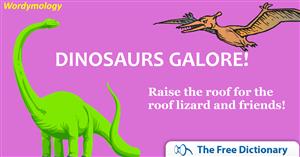The Farlex Grammar Book > English Spelling and Pronunciation > Common Mistakes and Commonly Confused Words > illusion vs. delusion
illusion vs. delusion
What is the difference between illusion and delusion?
An illusion is an erroneous perception, belief, construal, or concept. It can refer to a trick of the senses, such as a sound or image that is not what it seems to be, or to a concept or idea that is wrongly presented or perceived. For example:
- “We thought there was a lake on the horizon of the desert, but it was merely an optical illusion.”
- “The photographs give the illusion that the house is much bigger than it actually is.”
- “Many people feel that our sense of freedom is really just an illusion.”
The word delusion not only sounds similar to illusion, but has a similar meaning as well. It is also a noun, and it means “a mistaken, misleading, or false opinion, idea, or belief.” Unlike illusion, delusion generally carries a negative connotation, suggesting something “abnormal” with a person’s way of thinking. It most often refers to misperceptions that are deceptive, illogical, contrary to factual evidence, or (in psychiatry) the result of mental illness. For example:
- “I guess I was under the delusion that Geoffrey would stand by me no matter what happened.”
- “They still adhere to the delusion that they have an inherent right to dictate the moral standards for the rest of society.”
- “She has this unshakeable delusion of persecution by those around her.”
- “He has been describing paranoid delusions consistent with symptoms of schizophrenia.”
In some cases, either word will work when describing false or erroneous beliefs or ideas, as in:
- “Many people feel that our sense of freedom is really just an illusion.”
- “Many people feel that our sense of freedom is really just a delusion.”
- “They were under the illusion that the product’s success was guaranteed.”
- “They were under the delusion that the product’s success was guaranteed.”
However, using delusion instead of illusion in a sentence—even when there is no functional difference in meaning between the two—still carries an implied negativity; if you are trying to convey a more benign or innocent misperception, illusion is the better choice.
Spelling Tricks and Tips
Here’s a way of remembering the difference between the two words:
- An illusion is usually an innocent trick of the imagination, so it begins with an I.
- A delusion is more often a deceptive or disturbed misbelief, so it begins with a D.
Get all volumes of The Farlex Grammar Book in paperback or eBook.

